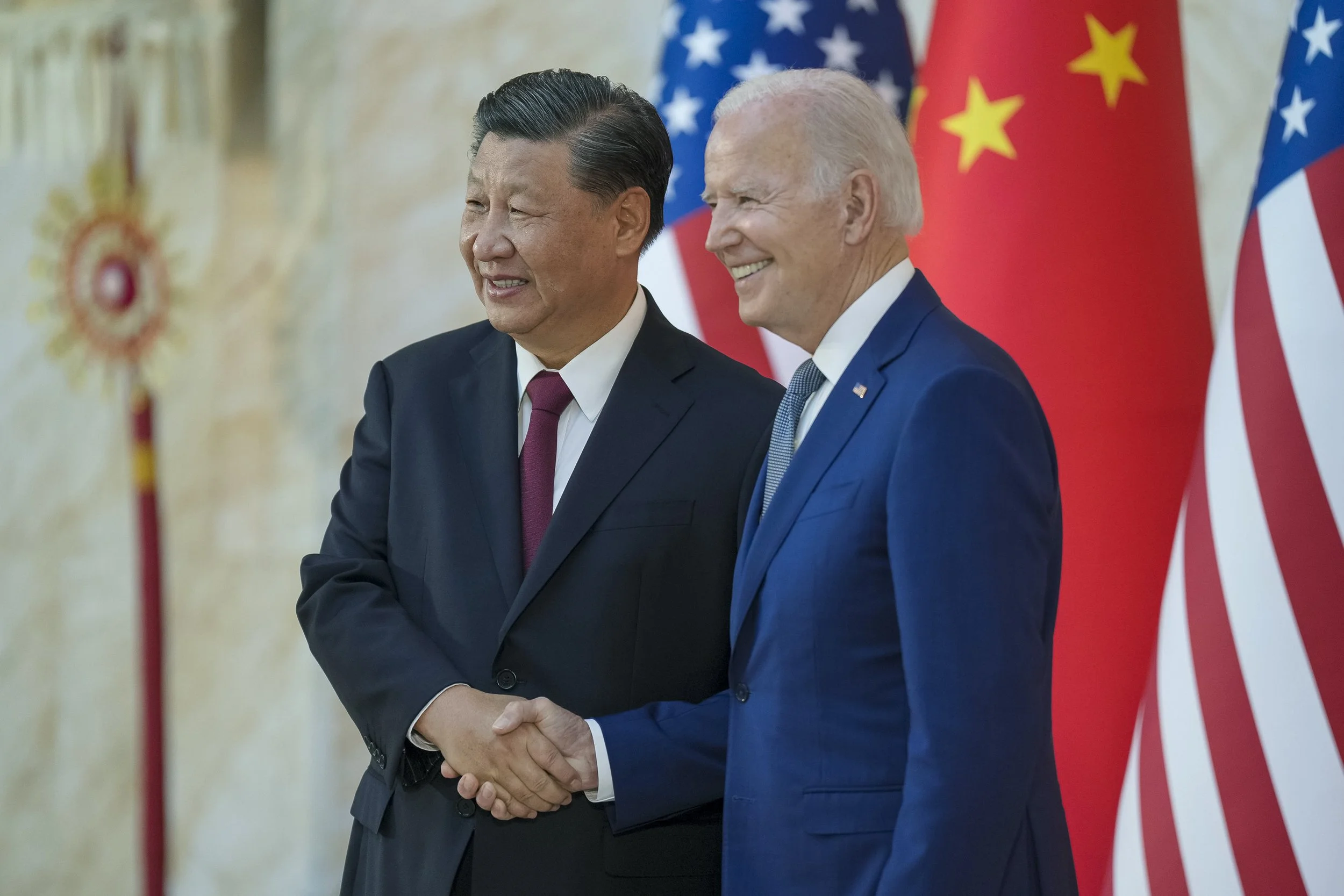In this In Forum, 9DASHLINE asks several experts what to expect from the next US administration and its potential impact on the Indo-Pacific region.
Read MoreWritten by Dr Kerry Brown
In this context, the one positive Russia offers to China is that it does not belong to the Western bloc. Xi’s seemingly warm words to Putin are an acknowledgement that his enemy’s enemy is his friend.
Read MoreWritten by Dr Richard Johnson
Whatever happens in the remaining two years of the first Biden term, the octogenarian president can already feel confident that he has left a major legacy and will be recorded as a very consequential president.
Read MoreWritten by Taylah Bland
If the world’s two rivalling superpowers can cooperate on climate change, the rest of the world has no excuse but to join in the effort.
Read MoreThis month we enjoy a fascinating conversation with Ali Wyne where we discuss his new book America's Great Power Opportunity: Revitalizing U.S. Foreign Policy to Meet the Challenges of Strategic Competition.
Read MoreWritten by Tom Corben
What will frustrate many in Asia is that the urgency evident in these new US commitments to collective defence in Europe is yet to be mirrored in parallel efforts in the Indo-Pacific.
Read MoreWritten by Casey Babb
If he is going to be compelled to behave differently, or if regime change is the end goal, policymakers, practitioners, and cyber experts need to cut off North Korea’s digital “bank robbers”.
Read More9DASHLINE recently sat down with Amish Raj Mulmi to discuss his new book All Roads Lead North: China, Nepal and the Contest for the Himalayas.
Read MoreWritten by Malcolm Campbell-Verduyn and Francesco Giumelli
The Indo-Pacific region has become a key site for informal attempts to create “crypto-utopias” and formal pilots of Central Bank Digital Currencies (CBDCs).
Read MoreWritten by Daniel Julian Savua
While the PIF started in the era of regionalism and cooperation between nations, it has now turned to individualism with some nations taking steps that are best for them rather than the region.
Read MoreWritten by Céline Pajon
Faced with the paralysis of the UN Security Council (UNSC), for instance, Tokyo condemned Russian actions and called for reform of this body. As part of this reform, the number of UNSC permanent members would increase, with a seat for Japan.
Read MoreWritten by Matthias Niedenführ
The West must ask itself serious questions about its desired relationship with China but a blanket closure of Confucius Institutes seems a politically expedient knee jerk reaction.
Read MoreWritten by David Hutt
There is a deep sense of unease about America's actual place in world affairs. It is therefore worth considering whether American power, at home and abroad, appears weak or is weak.
Read MoreAlthough Indonesia, which accounts for half of ASEAN’s size and wealth, is the natural leader of the grouping when it does not actively lead, the group is further weakened.
Read MoreWritten by Jacob Stokes
Biden’s prioritisation of allies and close partners could leave the rest of the region’s states unsure about their role and those of the region’s legacy multilateral institutions, such as ASEAN and the East Asia Summit.
Read MoreChinese investment through the BRI is just part of the story, because if managed correctly, it is the first mover that unlocks greater investment from other powers and corporations, and leads to growth that ultimately helps countries pay their debts.
Read MoreWritten by Martin Thorley
One can build a strong case in favour of creating AUKUS, but a wider strategy that doesn’t address the transnational challenges of corruption, illicit finance, and corporate complicity, risks reinforcing the castle walls as the throne at the centre rots.
Read MoreWritten by Tuvia Gering
If, over the last decade, Israel sought to diversify its global focus away from the US and Europe toward China and India, it now must go a step further and strengthen its integration with Japan, Korea, Taiwan, and ASEAN countries, particularly by normalising relations with Indonesia
Read More
















